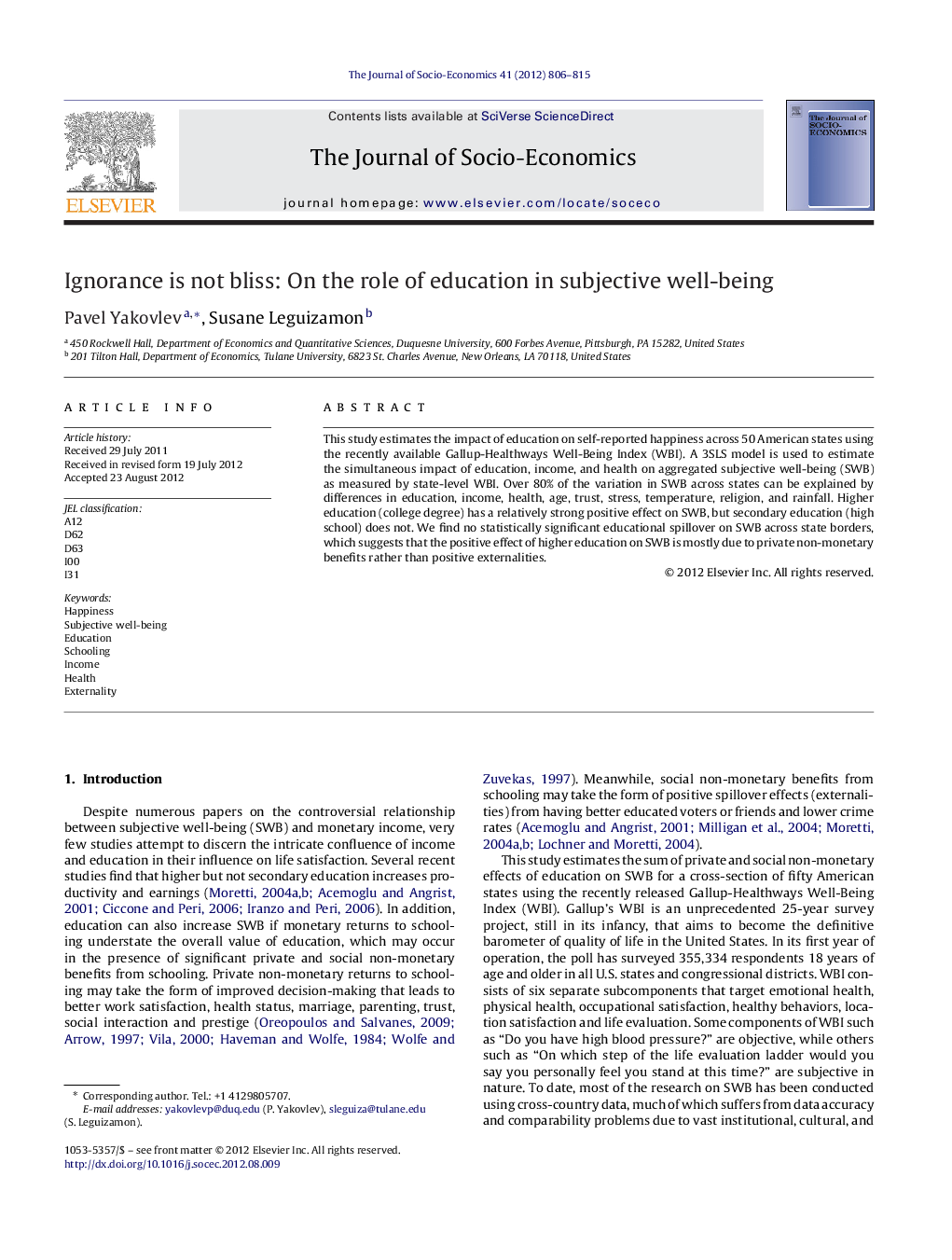| Article ID | Journal | Published Year | Pages | File Type |
|---|---|---|---|---|
| 969936 | The Journal of Socio-Economics | 2012 | 10 Pages |
This study estimates the impact of education on self-reported happiness across 50 American states using the recently available Gallup-Healthways Well-Being Index (WBI). A 3SLS model is used to estimate the simultaneous impact of education, income, and health on aggregated subjective well-being (SWB) as measured by state-level WBI. Over 80% of the variation in SWB across states can be explained by differences in education, income, health, age, trust, stress, temperature, religion, and rainfall. Higher education (college degree) has a relatively strong positive effect on SWB, but secondary education (high school) does not. We find no statistically significant educational spillover on SWB across state borders, which suggests that the positive effect of higher education on SWB is mostly due to private non-monetary benefits rather than positive externalities.
